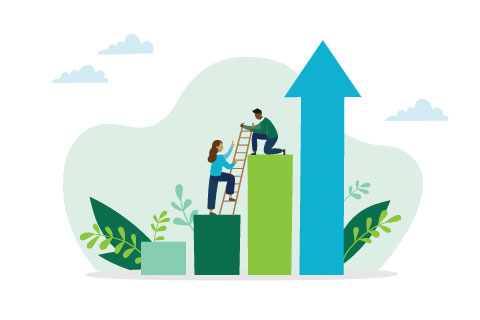By Jo Causon, CEO, The Institute of Customer Service
Welcome to our first blog of 2015. It as been a busy start to the year for the Institute as I am sure it has been for everyone.
In fact, what the latest UKCSI demonstrates is that our expectations have grown still further with speed of response and the requirement to be easy to do business with growing in importance; however there is an important point, it’s not just the speed of transaction and resolution when we look across the key drivers in the UKCSI, one of the most important points that emerges is the need for an authentic relationship with our customers. As customers we have become intolerant of poor service and are clearly making our voices heard, we are also less trusting but there is a real opportunity for us to retrieve the lost trust by genuinely focusing on the service experience.
Right at the beginning of the year the Institute launched a specific piece of research on what we felt were the key trends that had started to emerge in 2014 and how we believed they will develop throughout 2015. The environment in which we all work is tough and the marketplace, although showing growth in many sectors, remains uncertain as does the wider world in which we operate.
The UK Customer Satisfaction Index – The latest UKCSI demonstrates that customers are more demanding but also that some organisations have been found wanting. We are seeing a growing polarisation around organisational performance and I believe we have entered a new era where the relationship economy is even more important. This means that in 2015 organisations need to be more agile than ever, with a relentless focus on the service experience across all areas of the business.
I also believe that collaboration and co-creation will really come to the fore this year, if we are to achieve the personalisation that customers are looking for. In our hyper connected world, organisations are collecting data, everything from our shopping habits to energy usage is being tracked, but we are still struggling to turn this into meaningful insight. Some organisations might therefore be tempted to focus purely on the hygiene factors and continue in some cases to see customer service as a functional activity, important though these hygiene factors are (speed of response, complaint handling, joined up communications and channels) tackling them alone will not provide a long term sustainable business model and addressing them simply means a place at the table.
So what is it that will really make a difference in delivering a customer centric organisation in 2015?
For me it is the following: a genuine strategic commitment to customer service, where the board regularly review their customer insight and have an intrinsic understanding of how this drives their businesses forward. Where we start to look to the long term, not simply at next weeks or quarter’s results and where we genuinely see the link between service and organisational performance. It is my belief, and there is now a growing body of data that supports this, that customer service measures are predictive, maybe not immediately but certainly over the longer term.
Where the board measures and takes account of the information they receive across the whole customer experience, the strategy, process and culture. Where we invest in genuine insight and understanding so that we can co-create the services our customers demand, rather than simply trying to sell more product. We will see the returns we need to.
There is clearly an intrinsic link between customer satisfaction and employee engagement and I believe there are two critically important drivers, the pride our people have in the organisations they work for and how much empowerment they truly have, these two factors play a significant part in delivering and sustaining the customer experience.
So, in 2015 we need to equip our people with the appropriate skills and competencies, and in particular drive for authentic relationships, and recruit with the customer in mind both internally and externally. I am mindful that in a highly competitive environment we always need to drive out efficiencies and strive for greater effectiveness. The truth is, in a customer centric organisation you need both, but the lens is from the outside in not inside out.
The role of the Institute
I firmly believe that it is our role to help our members to achieve long term sustainable business success, by providing products and services that help them to navigate the challenges we all face. To be the ‘critical friend’ and to keep striving for greater insight and knowledge into what service means now and in the future and to ensure we uphold the standards that represent great customer service.
If we do this and work together we will be able to drive up the standards and meet the requirements of the customers we serve and above all I look forward to continuing our journey together.




This Post Has 0 Comments